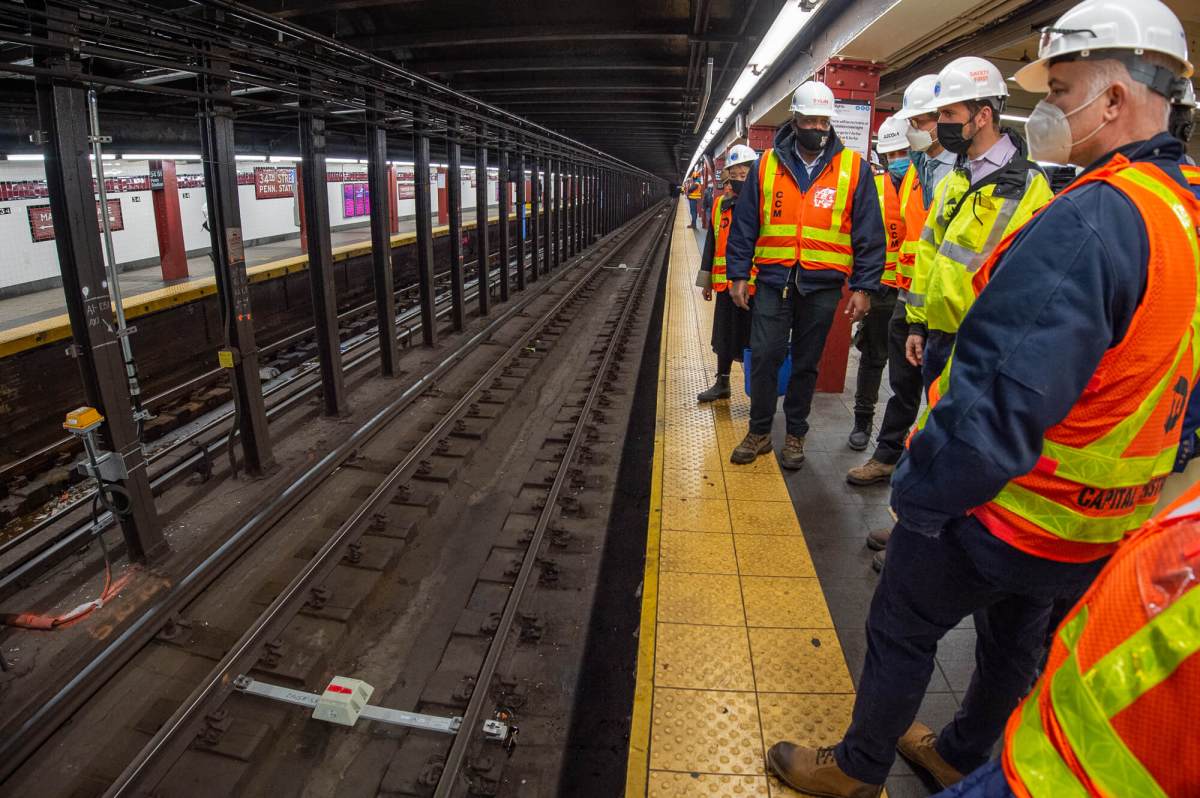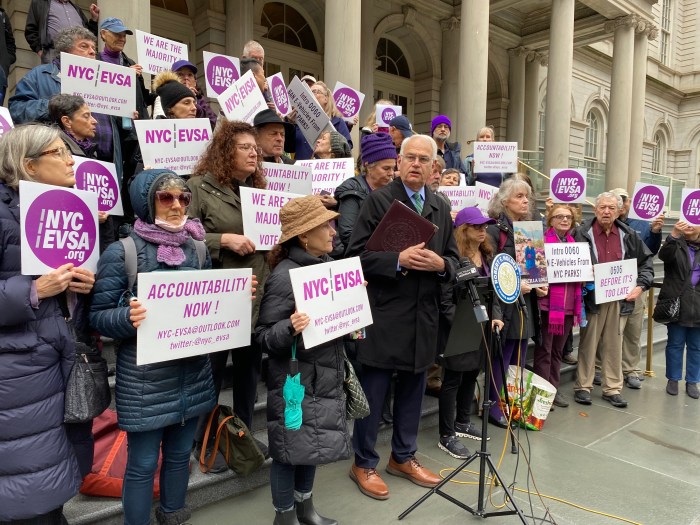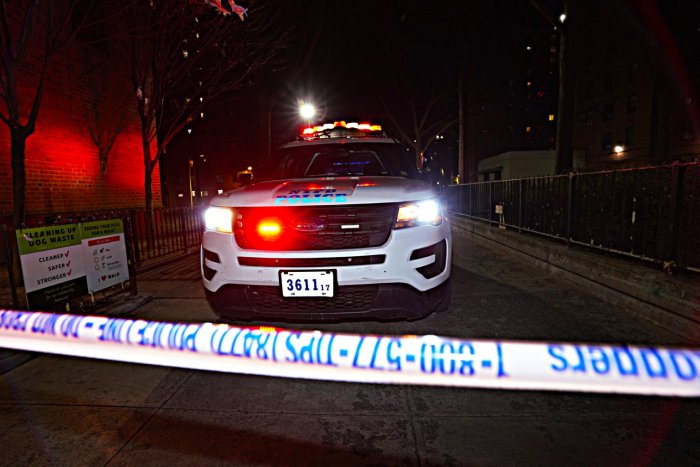The Transport Workers Union Local 100, which represents thousands of NYC Transit workers who keep the city’s subways and buses running, announced on Thursday legislation that would make it legal for them to strike in pursuit of a new contract with the MTA.
The announcement comes at a critical time for public transit in New York, with the MTA struggling to close a massive budget deficit, and the current collective bargaining agreement with the TWU Local 100 for some 37,000 laborers set to expire in May.
State Senator Jessica Ramos and Assembly Member Stacey Pheffer Amato, both Democrats from Queens, introduced the legislation, drafted at the union’s request, on March 16. It would amend the Taylor Law, which prohibits certain public service workers such as transit workers from walking off the job during labor disputes with government agencies.
The Taylor Law hasn’t stopped the TWU Local 100 from striking against the MTA before, but it led to costly retribution.
The last transit strike occurred in December 2005, paralyzing the city’s public transit system for three days amid the holiday season. The union’s president at the time, Roger Toussaint, was arrested and later ordered to serve a 10-day jail sentence for calling the work stoppage, and the union itself was hit with $2.5 million in fines, deducted from the workers’ paychecks.
But the Taylor Law, according to Ramos, weakens the TWU Local 100’s ability to negotiate a fair contract with the MTA due to the threat of arrest and/or severe economic penalties for potentially striking.
“I legislate for workers,” Ramos said. “When the workers of TWU came to me saying they need this tool to be able to fight for a contract that can support their families, I was more than happy to agree to champion their legislation. This adjustment will result in a strong contract for workers, which in turn will mean better service for New Yorkers.”
According to the legislation, based on the federal Railway Labor Act, unionized bus and subway workers throughout New York state would be permitted to engage in a strike should negotiations and mediation fail to result in a fair contract. It would remove the various economic penalties that the unions would otherwise incur for such a labor action.
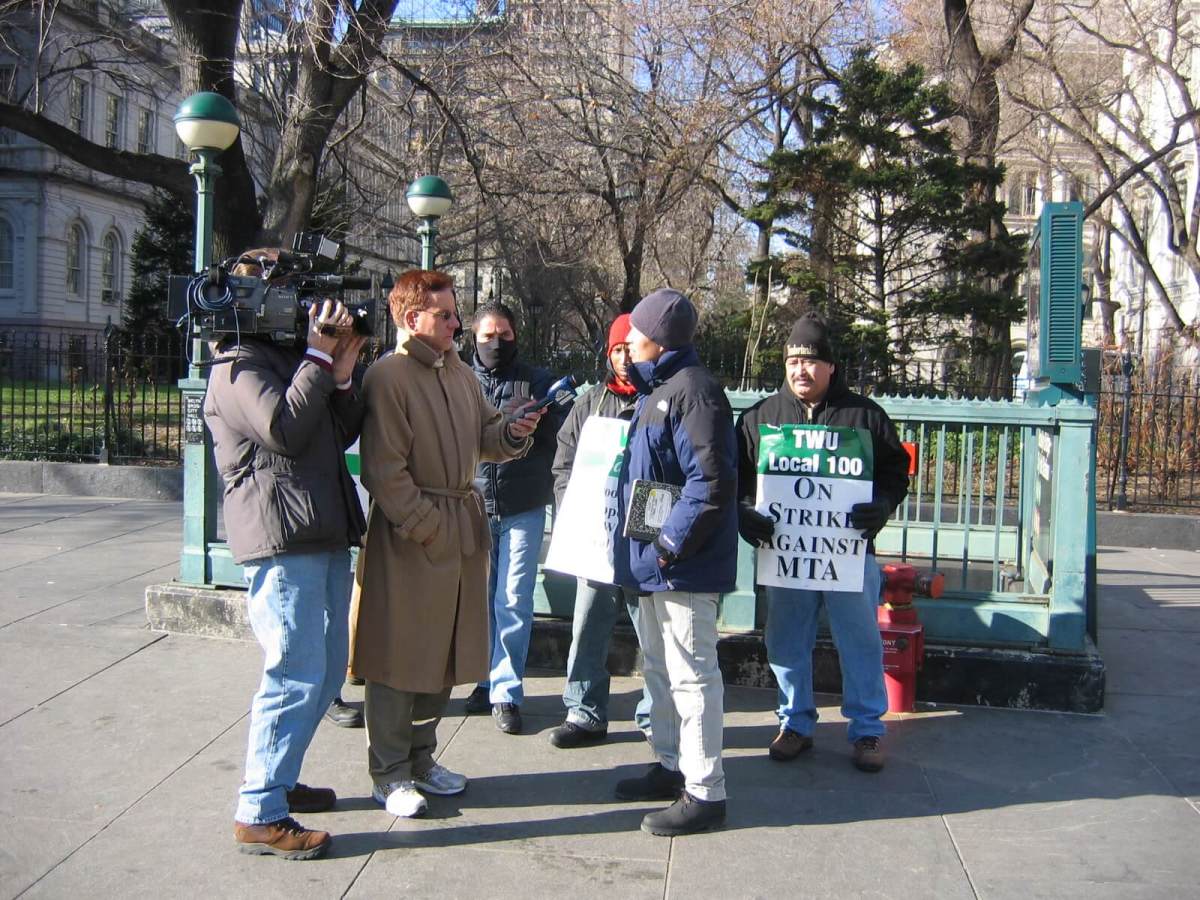
The TWU said this arrangement would be no different than the legal protections that railroad workers with the Long Island Rail Road and Metro-North Railroad have to strike when collective bargaining fails.
“The right to strike for NYC Transit workers is a matter of equity,” TWU International President John Samuelsen said. “Prohibition against striking for inner city transit workers, while our suburban counterparts can legally withhold work, is grossly unfair, grossly inequitable.”
Currently, the clock is ticking on the collective bargaining agreement that the MTA and TWU Local 100 reached in January 2020. Set to expire on May 15, the agreement provided a 9.8% raise to some 37,000 transit workers over a four-year period retroactive to May 15, 2019 — at a cost of $1 billion to the MTA. The union also won an additional $64 million in non-wage benefits, such as health insurance.
But that agreement was signed, sealed and delivered two months before the COVID-19 pandemic hit New York City — spurring mass public closures and a catastrophic decline in daily MTA subway ridership, which fell from record highs in February 2020 of 5.5 million to just 300,000 in April 2020.
Overall transit ridership has rebounded significantly since the dark days of that pandemic spring; on Dec. 8, 2022, more than 3.9 million trips were recorded, a pandemic record. However, that number is still far off from pre-pandemic totals — and the decline in ridership has resulted in the MTA facing serious budget gaps, and power brokers scrambling to figure out how to resolve them while avoiding service cuts and fare hikes.
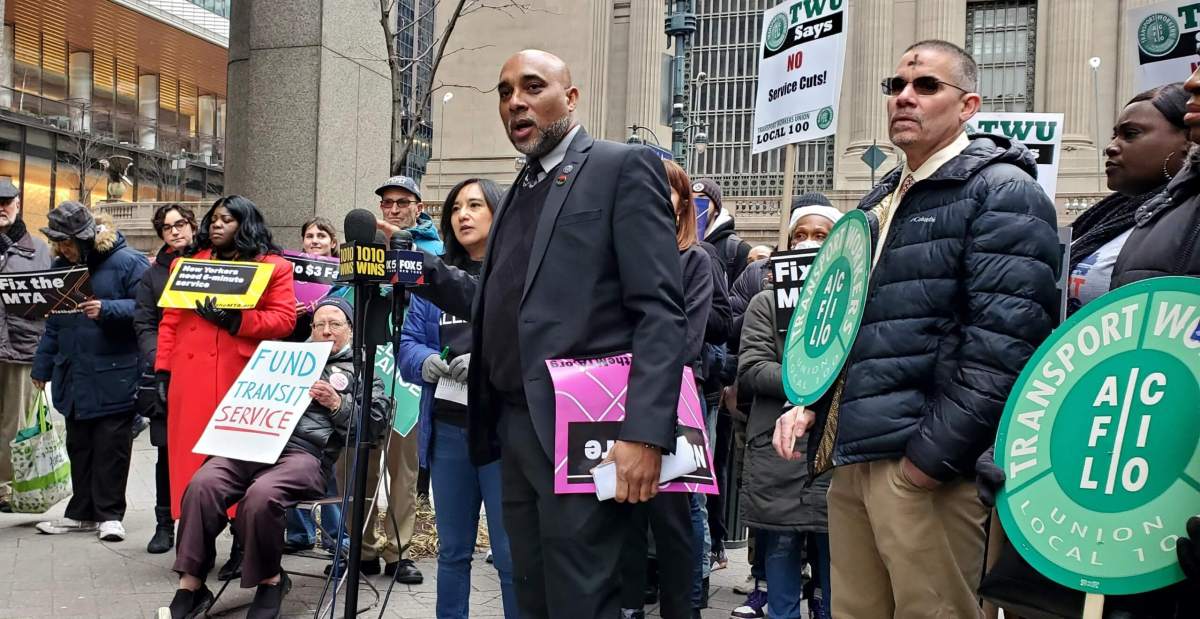
Despite the MTA’s budget problems, the union still has to look out for its workers. And TWU Local 100 President Richard Davis indicated that changing the Taylor Law to protect transit workers in the event of a strike is necessary to advance their cause for a better contract.
“This is a democracy,” Davis said. “Working men and women should have the right to withhold their labor so they can secure good wages and provide for their families as best as they can. It’s that simple. The working class has not received its fair share in society, and we will not rest until we receive it.”
amNewYork Metro reached out to the MTA, but they declined to comment for this story.
Read more: MTA Proposes $2.90 Subway, Bus Fare Increase



